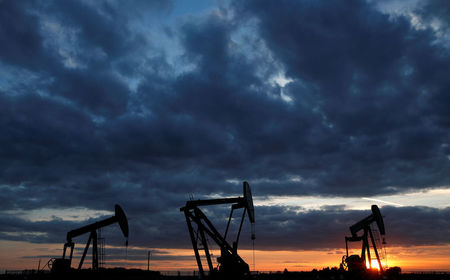
Investing.com — Crude prices hovered around the flatline on Monday, buoyed by concerns that heightened conflict in the Middle East may curtail regional supply.
By 08:30 ET, the Brent contract was mostly flat at $74.51 a barrel, while U.S. crude futures (WTI) traded 0.2% higher at $70.21 per barrel.
Traders were seen attaching a risk premium to oil prices as Israel continued to carry out strikes in Gaza and Lebanon, keeping concerns of an all-out war in the oil-rich region in play.
Hezbollah had recently vowed retaliation against Israel after the country allegedly detonated several electronic devices used by the Lebanese group.
The constant fighting and threats of war pushed up concerns that a bigger conflict in the Middle East will disrupt supplies, tightening global markets. Crude prices have seen a two-week rebound from near three-year lows, boosted by supply fears in the wake of Hurricane Francine.
However, analysts at Bank of America noted that “sentiment among energy investors has turned decisively bearish” due to plans by the Organization of the Petroleum Exporting Countries and its allies — known as OPEC+ — to phase out additional voluntary output cuts. The oil group is set to gradually bring back 2.2 million barrels per day from December 2024 until November 2025, although this timeline was itself earlier delayed by two months.
“Speculative net positioning in total petroleum futures and options recently dropped to the lowest levels since at least 2011, suggesting investors are already more than positioned for a falling energy price environment,” the Bank of America analysts said.
Further denting the outlook has been weak demand in top oil importer China, worries over a possible rise in trade tensions, and a “hard landing of the global economy,” the BofA analysts flagged.
Yet, for all the bearish concerns, the analysts said price risks are “more balanced,” citing their expectations for an acceleration in global energy consumption thanks to an artificial intelligence-fueled spike in productivity.
“It is important to remember that the upcoming clash between artificial intelligence and the fight against climate change has energy at its core,” the BofA analysts said.
This post is originally published on INVESTING.



